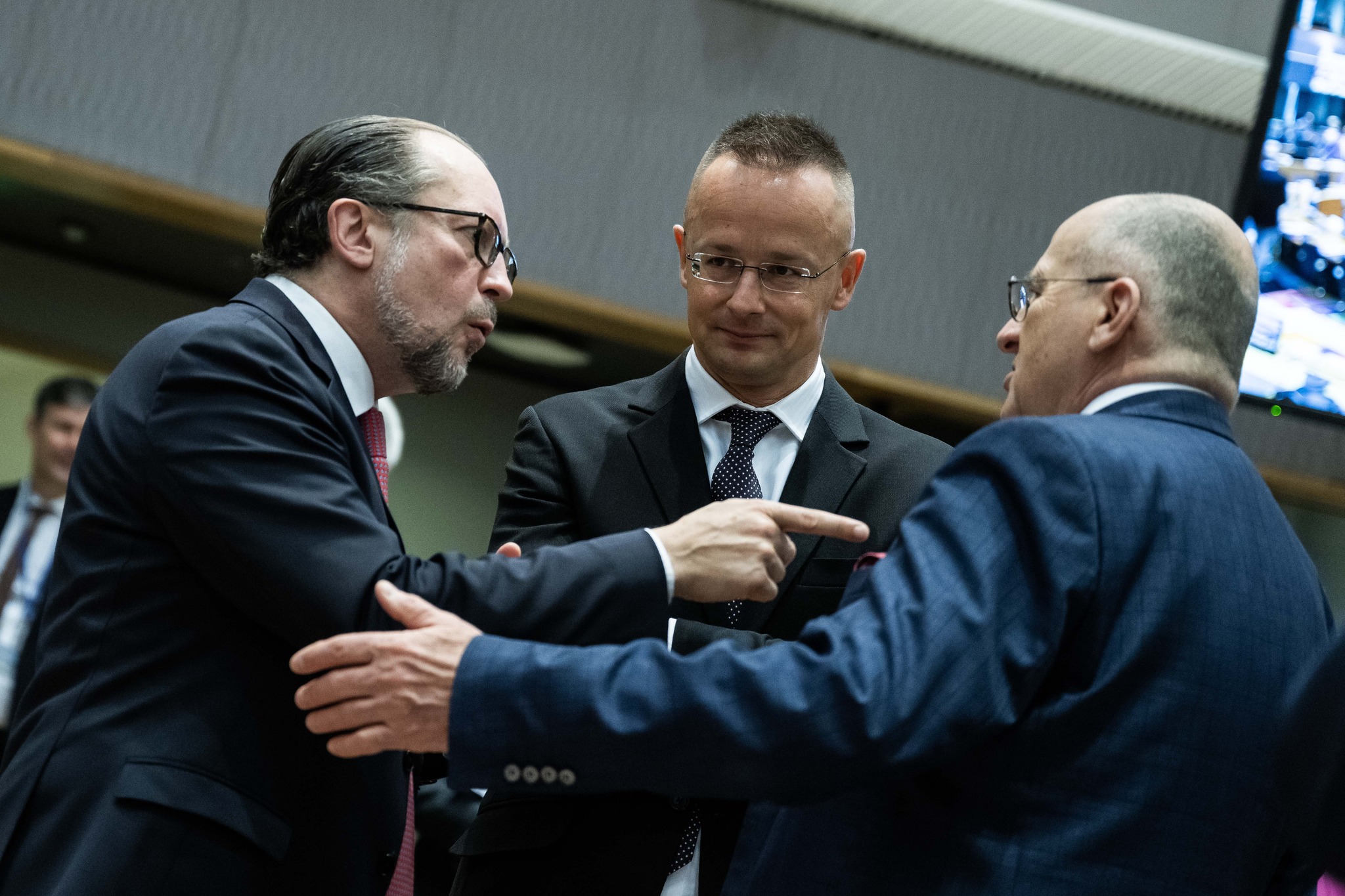There is enormous pressure concerning the arms deliveries to Ukraine and new sanctions, but the government will not give up its commitment to peace and its national interests, Minister of Foreign Affairs and Trade Péter Szijjártó said in Brussels on Monday.
According to a statement by the Foreign Ministry, the minister said at a press conference during a break in the EU Foreign Affairs Council that the mood remains combative, with the majority of Member States believing, contrary to the Hungarian government, that there can be a military solution to the war, while this would risk prolonging the fights.

"The view that Ukraine is fighting for Europe or on behalf of Europe is still widespread. We believe that this is not our war, that we bear no responsibility for its outbreak, but that we are paying the price of this war (...) We continue to call for an end to the war and for peace talks to begin," he said.
He underlined that there is also enormous pressure for the next tranche of €500 million of the European Peace Facility to be approved and for the eleventh package of sanctions against Russia to be approved.
"Despite the pressure, we will not give up our commitment to peace, we will not give up the protection of the Hungarian community in Transcarpathia, we will not give up the representation of the national interest," he warned.
Szijjártó pointed out that 5.7 billion euros from the European Peace Facility had already been used to finance arms transfers to Ukraine, and although Hungary believes that this poses an escalation threat, the government has not so far prevented the payments, but this time it made it clear that it would oppose the new tranche until Ukraine removes OTP Bank, which does not violate any international law, from the list of international sponsors of the war.
"The accusations against OTP are false, they are not based on any facts and we demand that the Ukrainians remove OTP from the list of international sponsors of the war," he said.
He then turned to the draft new sanctions package, saying that lessons should be learned from the failed punitive measures adopted so far, as they hurt Europe more than Russia, and that new restrictions would cause even more difficulties.
He highlighted two dangerous elements, one being that they would make it even more difficult for European companies to export outside Russia, leading to a loss of competitiveness. "And, in the same way, we consider it dangerous, unreasonable and contrary to the European interest that the European Union wants to introduce restrictive measures against eight Chinese companies in this package of sanctions," he pointed out.
In this context, he explained that the sanctions against Chinese companies would have a serious impact on relations. "And with sanctions we have already shot ourselves in the foot and the lungs. If the European Union destroys its own economic cooperation with China, it will be an enormous loss", he said.
"We think that if Europe gets into a conflict with China, that if Europe wants to compete with China, Europe will lose out," he said, noting that instead cooperation based on mutual respect and mutual benefits is needed.
The minister stressed that several member states have again called for sanctions against the nuclear industry, but the government is resisting despite all pressure to guarantee energy security.
Speaking about the deprivation of the Hungarian community’s rights in Transcarpathia, he stressed that Hungary can only contribute to the progress of Ukraine's accession negotiations if Kiev restores the rights previously enjoyed by the national community.
He also said that he had heard back from a participant that the Ukrainian leadership claimed that the Venice Commission had already approved the minority law, while the body had not yet adopted its position on the matter, which could take place in June.
Although, as he said, "Ukrainian propaganda is working over the minority law", the reality will "kick the door down on everyone" in a few months' time, when the Hungarian minority schools will be unable to operate in their current form from 1 September.
"There is a lot of pressure, both in terms of financing arms transfers and sanctions, but the Hungarian government will not give up its commitment to peace, will not give up representing the Hungarian national community beyond the border, including the Hungarian national community in Transcarpathia, and will not give up representing national interests", he concluded.
Source: MTI - Hungarian News Agency

